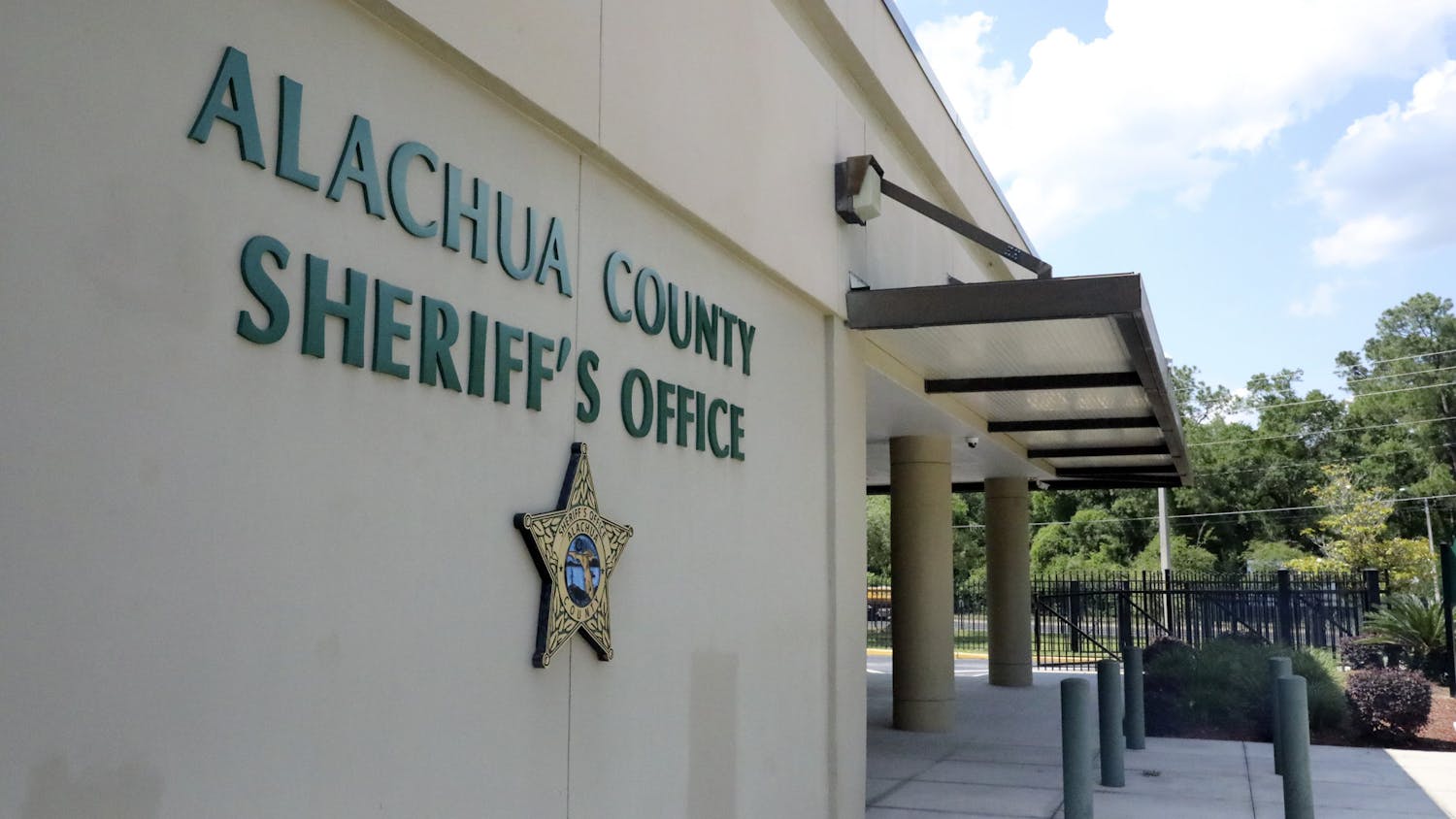
In 35 years of owning a Gainesville gun shop, Suzanne Miller said she’s never seen gun sales increase at the magnitude of the last six months.
Since the COVID-19 pandemic largely shut down the U.S., the number of customers at M&C Army Surplus store on 626 NW 13th St. have nearly tripled.
She said the demand is not just in Gainesville, it’s national. And she's running out of supplies.
Following a summer of Black Lives Matter protests against police brutality and the approach of the 2020 election, the polarization of parties has become increasingly prominent as voters rally on either side of legislative platforms, like gun control.
In June, the FBI reported Americans set a record with more than 3.9 million background checks for gun sales. Numbers dropped to more than 3.6 million in July, still surpassing the 2.1 million background checks in July in 2016. In June, nearly 184,000 background checks for gun sales and transfers took place in Florida. This was more than double the monthly total from last year and more than any other month in 2019 or 2020 so far, according to the Orlando Sentinel.
In Florida, gun stores are considered an essential business, so they were able to stay open during the pandemic.
“There's a shortage of ammunition, there's a shortage of firearms, and I think people are scrambling to try to get what they can,” Miller said.
Miller says the lack of accessibility to firearms is one of the reasons why gun sales skyrocketed. Borders closed due to the COVID-19 pandemic, which created a shortage of workers and production. Gun imports have more than doubled as the United States has imported an annual average of 1.5 million firearms from 1986 to 2008, which grew to 4.2 million firearms per year from 2008 to 2018. This was driven primarily by handgun and rifle imports, according to the Center for American Progress.
Miller said she runs out of supplies daily. She limited ammunition, especially nine millimeter ammunition, to one box per customer, because the store is always running out. Miller said she has also seen a surge in sales of mace and self protection aides like tasers.
“I think there's a nervousness or concern with the racial tensions that people want self-protection,” Miller said.
Miller said there is usually a surge in gun sales during an election year because voters are concerned about candidates’ gun control policies. She said in 2012, preceding Obama's re-election, there was a surge in people buying guns, but not to the magnitude that she saw this year due to the lack of firearms and the election.
David Jones, pro shop manager of Shoot GTR at 1610 NW 65 Place, said he has seen an increase in new customers coming in to purchase guns for self protection.
“I think fear is a huge motivator right now for a lot of new shooters,” Jones said. “I really wish it was otherwise too, because there's so many good reasons to buy a gun, but being afraid isn't exactly the best reason to buy a gun.”
Jones said the new customers have been the drive in sales in the past months, as he describes these people as usually less inclined to own guns, and maybe didn’t ever want to own a firearm, but now feel like they have to because they’re afraid.
“There's a lot of people out here that I've seen in different walks of life, in different circumstances that didn't expect to come out here, and other people that I've run into that have personally told me that they wouldn't ever buy a gun,” Jones said. “But they're out here buying a gun.”
Jones said if the election were the sole motivating factor for people buying guns, then the likelihood of the rate of sales increasing or maintaining would be a reasonable assumption as November approaches.
“I think the increase that we saw up to this point is going to be one spike in a very complicated graph leading up to the election,” Jones said. “And the social atmosphere is going to be a factor as well as polling data, and what the potential outcomes look like is going to be a factor as well as other circumstances of the virus in extenuating further circumstances that I haven't anticipated yet.”
Richard Conley, a UF political science associate professor, said fear is a big motivator for people in today’s polarized political climate. He said if people buy into the idea that one candidate is going to destroy the country, people may feel like they have to go out and buy a gun to protect themself.
Depending on each candidate's stance on gun laws, people may feel inclined to get a gun if they may not be able to in the future, he said.
When the Title XI of the Federal Violent Crime Control and Law Enforcement Act of 1994 took effect, primary market prices of the banned guns and magazines rose by upwards of 50 percent during 1993 and 1994. There was a high demand for guns in response to the potential outcome while the ban was being debated in Congress, Conley said.
Conley said the police shooting of Jacob Blake, who was shot seven times in the back as his children watched from the back of his car on Aug. 23 in Kenosha, Wisconsin, has sparked conversation and debate around gun control in the U.S. as protests have erupted. One was on Aug. 25, where 17-year-old, Kyle Rittenhouse, is being accused of a single shooting incident which killed Anthony M. Huber, Joseph Rosenbaum and seriously injured a third person. Rittenhouse is facing multiple homicide charges.
Conley said this case will be one of many to keep an eye on, as the conversation around gun control and protests continue.
“You motivate people to vote by fear, and I think that's been really ratcheted up this year,” Conley said. “Not surprising. I think, given where the country has been the last four to eight years, that rhetoric is getting worse.”

Anna Wilder is a second-year journalism major and the criminal justice reporter. She's from Melbourne, Florida, and she enjoys being outdoors or playing the viola when she's not writing.





